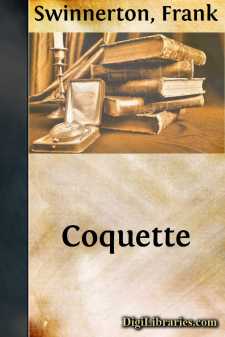Categories
- Antiques & Collectibles 13
- Architecture 36
- Art 48
- Bibles 22
- Biography & Autobiography 813
- Body, Mind & Spirit 142
- Business & Economics 28
- Children's Books 17
- Children's Fiction 14
- Computers 4
- Cooking 94
- Crafts & Hobbies 4
- Drama 346
- Education 46
- Family & Relationships 57
- Fiction 11829
- Games 19
- Gardening 17
- Health & Fitness 34
- History 1377
- House & Home 1
- Humor 147
- Juvenile Fiction 1873
- Juvenile Nonfiction 202
- Language Arts & Disciplines 88
- Law 16
- Literary Collections 686
- Literary Criticism 179
- Mathematics 13
- Medical 41
- Music 40
- Nature 179
- Non-Classifiable 1768
- Performing Arts 7
- Periodicals 1453
- Philosophy 64
- Photography 2
- Poetry 896
- Political Science 203
- Psychology 42
- Reference 154
- Religion 513
- Science 126
- Self-Help 84
- Social Science 81
- Sports & Recreation 34
- Study Aids 3
- Technology & Engineering 59
- Transportation 23
- Travel 463
- True Crime 29
Frank Swinnerton
Frank Swinnerton (1884–1982) was an English novelist, critic, and essayist, known for his insightful depictions of middle-class life. He authored over 50 works, including novels, biographies, and essays, with notable titles like "Nocturne" (1917) and "The Georgian Literary Scene" (1935). Swinnerton's writing often focused on social commentary and psychological depth, earning him praise for his realistic portrayals of characters. Besides his fiction, he was also respected for his work as a literary critic and his friendships with writers like H.G. Wells and Arnold Bennett.
Author's Books:
Sort by:
by:
Frank Swinnerton
BOOK ONE: TOBY i It was Saturday night—a winter night in which the wind hummed through every draughty crevice between the windows and under the doors and down the chimneys. Outside, in the Hornsey Road, horse-omnibuses rattled by and the shops that were still open at eleven o'clock glistened with light. Up the road, at the butcher's just below the Plough public-house, a small crowd...
more...
by:
Frank Swinnerton
INTRODUCTION BY H.G. WELLS "'But do I see afore me, him as I ever sported with in his times of happy infancy? And may I—may I?' "This May I, meant might he shake hands?" —DICKENS, Great Expectations. I do not know why I should be so overpoweringly reminded of the immortal, if at times impossible, Uncle Pumblechook, when I sit down to write a short preface to Mr....
more...



